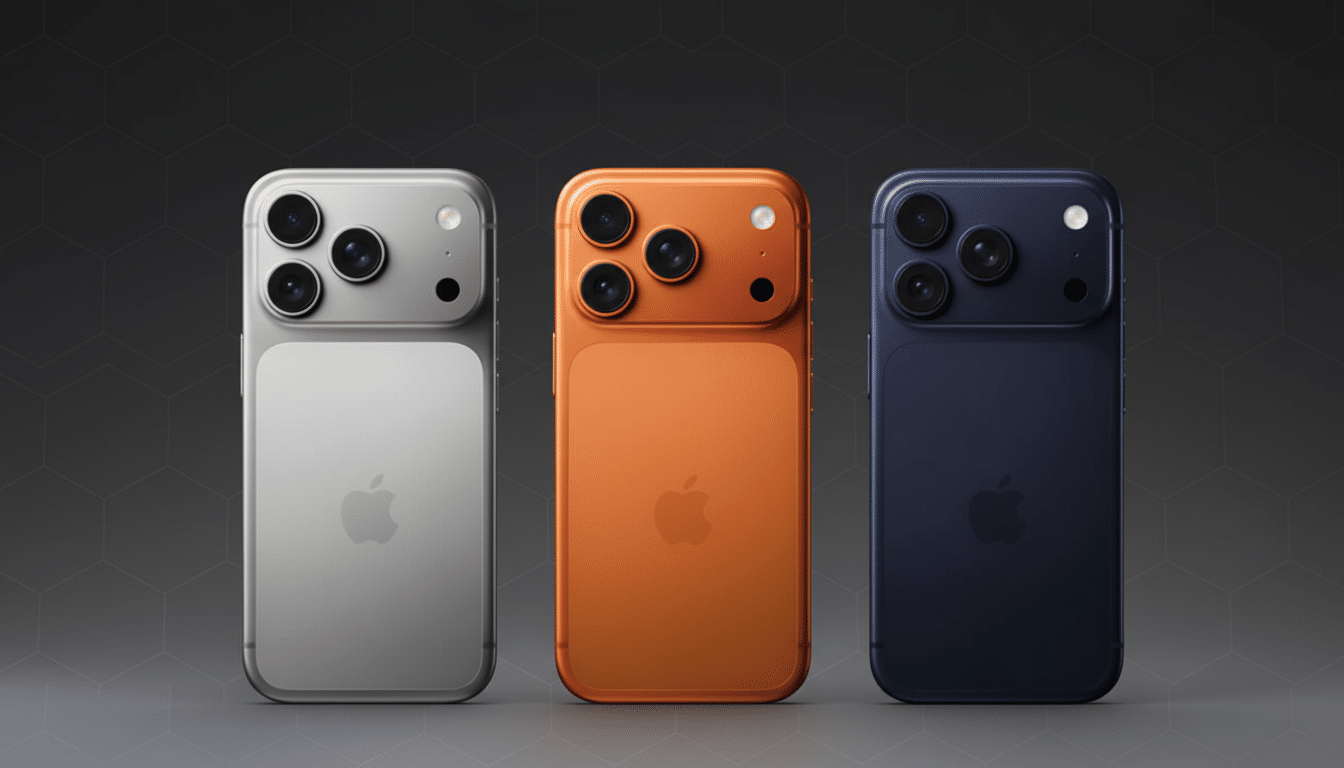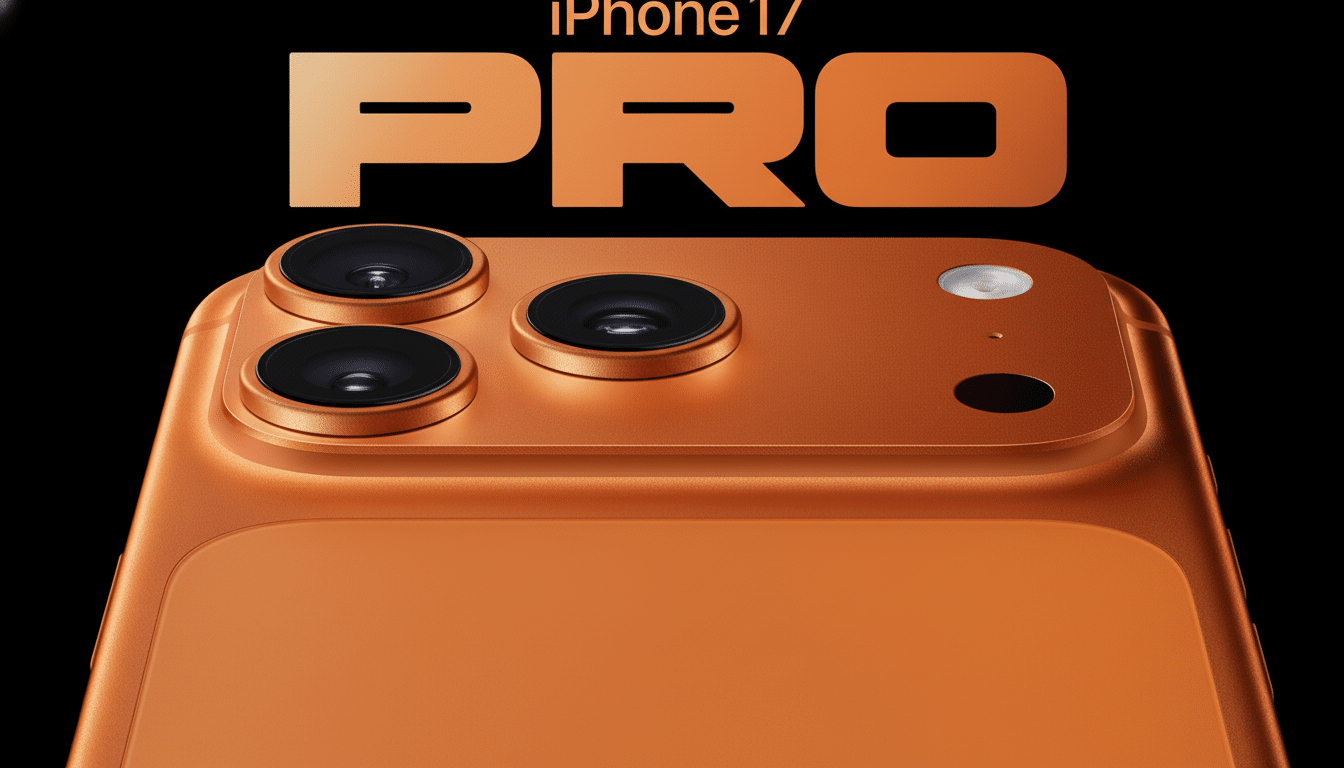I spent time using the iPhone 17 Pro side by side with the iPhone 16 Pro, switching back and forth to use them for daily tasks, to shoot and game and get around. The headline: Apple returned to durable, outdoor-visible and sustained-performance basics this time around. If you already own a 16 Pro, or if you’re in the market for a deeply discounted one, here’s what changes in ways that matter — and what doesn’t.
Design and durability
Apple renovated materials and protection on the 17 Pro. The frame is also transitioning to anodized aluminum, which enables brighter color finishes, while the front now has a new Ceramic Shield 2 cover. Apple’s pitch: much tougher scratch resistance and stronger shatter performance. The back, too, shifts to a strengthened Ceramic Shield coating. In other words, it’s designed to withstand more abuse in pockets and bags compared with the 16 Pro’s arrangement.

And the camera housing gets wider, more cohesive as well. If you appreciate the 16 Pro’s smaller, less obtrusive traditional triple-camera square, you may not like the 17 Pro’s more expansive module. With that said, the wider base probably helps for heat dissipation and stability equipment.
Display and outdoor visibility
This is the most noticeable upgrade right from the start. The iPhone 17 Pro brings a seven‑layer anti‑reflective coating to the Ceramic Shield 2, reducing glare that typically compels you to obscure or obscure your screen in bright sun; Apple rates peak outdoor brightness at as much as 3,000 nits now, compared with the 16 Pro’s 2,000 nits. Side‑by‑side use sees maps, the camera UI, and message threads remain legible without you needing to crank brightness towards the maximum quite so often.
Both phones retain ProMotion 120Hz, great color accuracy and HDR punch. This delta isn’t going to change your life, I mean, it’s not sounding; it’ll merely help you read outside by removing a few more of the smudgy, mirror reflections. And it’s one that many board sets test, including ours: Display evaluation labs like DisplayMate have known for years that reflectance is just as important for practical readability as raw luminance, and what Apple’s doing here is putting in its work to address both.
Performance and thermals
The iPhone 17 Pro has an A19 Pro chip with a vapor chamber. Apple’s line is that it’s “MacBook Pro‑level compute in an iPhone,” and, more tangibly, up to 40 percent better sustained performance. In stress runs — think long sessions of Genshin Impact or exporting a ProRes clip — the 17 Pro keeps the clocks higher and the frame dips smaller and the warmth from the thermals you can feel through the chassis are less than on the 16 Pro.
Both phones are speedy for everyday apps; where the difference becomes apparent is when heat comes into play. If you’re pushing mobile editing and on‑device AI features in iOS, or console‑style games, the 17 Pro’s thermal headroom pays dividends. Independent testing from sites like Geekbench and 3DMark will quantify that lack of space; early anecdotal use has already shown less throttling on the 17 Pro.
Cameras and creator tools
Front‑facing capture is the major headline here. The selfie camera of the iPhone 17 Pro is an 18MP shooter with Center Stage support and “ultrastabilized” video according to Apple. For vloggers, runners and mobile journalists, it’s a genuine upgrade — the phone keeps you framed, and your footage stable, all without a gimbal. The 16 Pro’s front camera is also very good but it isn’t quite polished in terms of this combination of resolution and subject‑tracking.

Rear cameras remain just as versatile on both models, the 16 Pro already providing impressive 48MP main sensor captures, dependable zoom and good low light treatment. For more stabilization and the ability to shoot longer in heat, Apple relies on computational advancements in the 17 Pro; the 16 Pro can bog down on long shoots, particularly in ProRes or with 4K extended recording.
Battery life and charging
Apple reports that the 17 Pro provides up to eight additional hours of video playback compared with the 16 Pro. Your mileage varies for 5G use and time spent with the camera, but the trajectory is clear: better efficiency and cooler operation add up to longer screen on. The 17 Pro gets through with a little more left in the tank than the 16 Pro following the same routine (the mixed real‑world use of navigation, camera, messaging and streaming).
Charging standards and accessories remain largely the same. If you’ve already constructed a MagSafe setup around the 16 Pro, it’s all backward compatible. The distinction is in how long you can go, not in how your charge.
Size, weight, and ergonomics
There’s a trade‑off to the 17 Pro’s durability and cooling: Mass. The 17 Pro is around 206g, its 16 Pro predecessor was roughly 199g: it’s not bricklike, but you feel it after long one‑handed sessions. If you covet the lightest Pro feel (the 15 Pro was the featherweight of recent years), the 16 Pro still wears the crown.
Software, longevity, and value
Both phones operate on iOS 26 and have years of updates in their future. Where the 17 Pro forges ahead is in still not throttling on headroom for on‑device AI features and pro workflows. If you’re someone who tends to hold onto a phone for four or five years, sustained performance and tougher glass are just as important as day‑one speed.
Pricing will make the 16 Pro hard to resist on clearance. Otherwise, if you’re itching for the ProMotion display, three cameras and the premium build, the 16 Pro is still a great buy at a lower cost. However, should outdoor visibility, creator‑grade front video, and cooler long‑haul performance address daily pain points, then the iPhone 17 Pro is the smarter upgrade.
Bottom line: Use-case determines choice
Choose the iPhone 17 Pro if you value its superior outdoor viewing with less glare, steadier thermals for gaming and editing, harder glass and a more capable selfie system. Stick with or go for the iPhone 16 Pro if you like how it feels to hold thanks to its titanium framing and the more pared-back camera design—and if there’s a sizable price cut that brings the phone close to mid-range territory. Apple’s own specs and briefing make the 17 Pro the play for performance and durability; the rest is down to your hands and habits.

